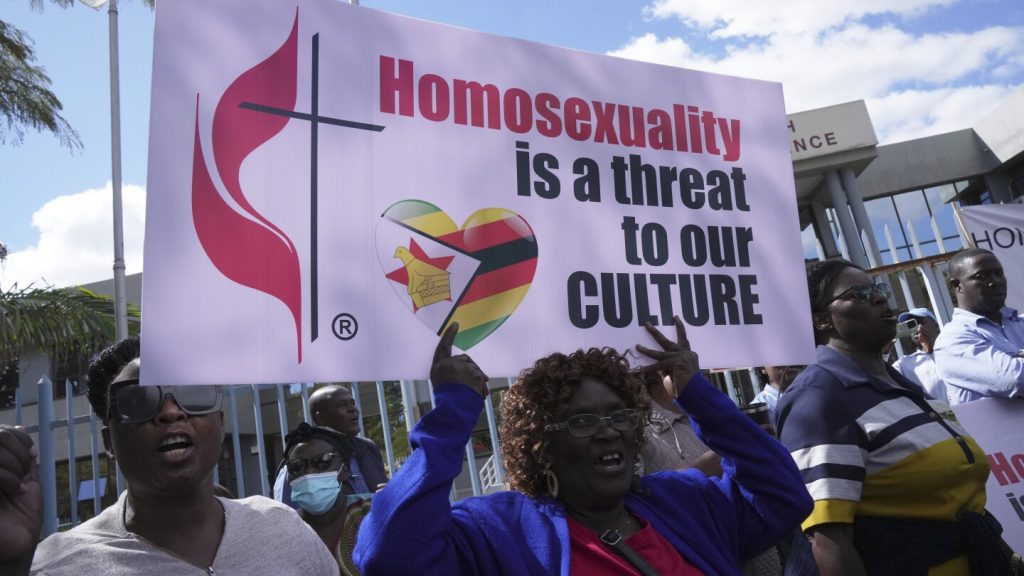The United Methodist Church recently faced a significant decision regarding LGBTQ+ clergy, with Ivory Coast’s branch choosing to split from the union after the church repealed its ban on LGBTQ+ clergy. This decision has caused ripple effects throughout conservative Africa, where the majority of United Methodists outside the United States reside. The church’s General Conference voted to remove the rule prohibiting LGBTQ+ clergy from being ordained, marking a significant departure from past decisions that reinforced the ban. While the change does not mandate or explicitly affirm LGBTQ+ clergy, it no longer forbids them, allowing each member church to decide for itself.
The Ivory Coast’s church, with over 1.2 million members, voted to split from the United Methodists in response to the repeal of the ban on LGBTQ+ clergy. This decision is a significant loss for the denomination, as the country’s church has one of the largest overseas followings. The United Methodist Church has about 5.4 million members in the United States and 4.6 million in Africa, Europe, and the Philippines. Despite the regret expressed by the Council of Bishops over Ivory Coast’s decision, they have committed to working with them to become an Autonomous Methodist Church. The council emphasized the strength of their connection through love, respect, compassion, and a shared commitment to faith in Jesus Christ.
In Zimbabwe, hundreds of United Methodist Church members gathered in Harare to protest against the church’s decision to welcome LGBTQ+ members. The protesters held placards denouncing homosexuality as a sin and an abomination, asserting that it is unlawful in Zimbabwe. The church members expressed concerns about the church aligning with the Rainbow Movement and viewed it as a threat to African traditions and human existence at large. Zimbabwean Christian denominations, along with others in Africa, have been vehemently opposed to any moves to embrace the LGBTQ+ community. These sentiments were also echoed by Catholic bishops in Africa and Madagascar, who rejected Pope Francis’s declaration allowing blessings for same-sex couples, stating that such unions are contrary to the will of God.
Chester Samba, the Director of GALZ, an organization representing the LGBTQ+ community in Zimbabwe, expressed skepticism about the possibility of changing the conservative stance in Zimbabwe and other African countries. Samba emphasized the importance of creating platforms for dialogue to enhance understanding and ensure that all individuals are welcome in places of worship, regardless of sexual orientation. Members of the LGBTQ+ community have been subjected to harassment and stigmatization, highlighting the need for greater acceptance and inclusivity. The ongoing tensions within the United Methodist Church and the broader African religious landscape underscore the challenges in addressing issues related to sexuality and theology in the region.
As the United Methodist Church grapples with the aftermath of the decision to repeal the ban on LGBTQ+ clergy, the schism in Ivory Coast and the protests in Zimbabwe highlight the deep cultural and religious divides within the denomination and across Africa. The church’s evolving stance on LGBTQ+ issues has sparked contentious debates and actions, leading to rifts and dissent among members. The reactions from various African countries reflect the complex intersection of religious beliefs, cultural norms, and human rights considerations concerning LGBTQ+ rights. Moving forward, the church faces the challenge of fostering dialogue and understanding while navigating the diverse perspectives and beliefs within its global community.


